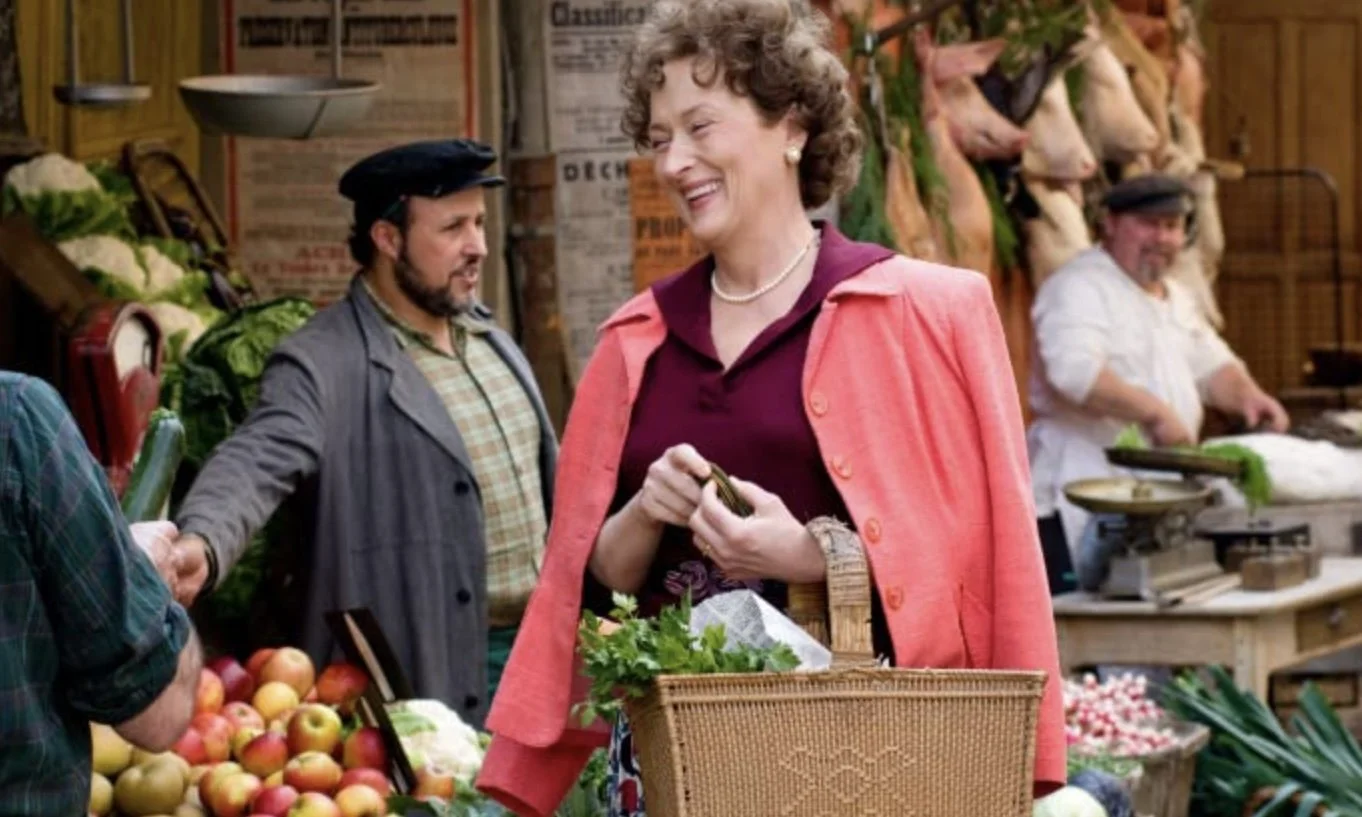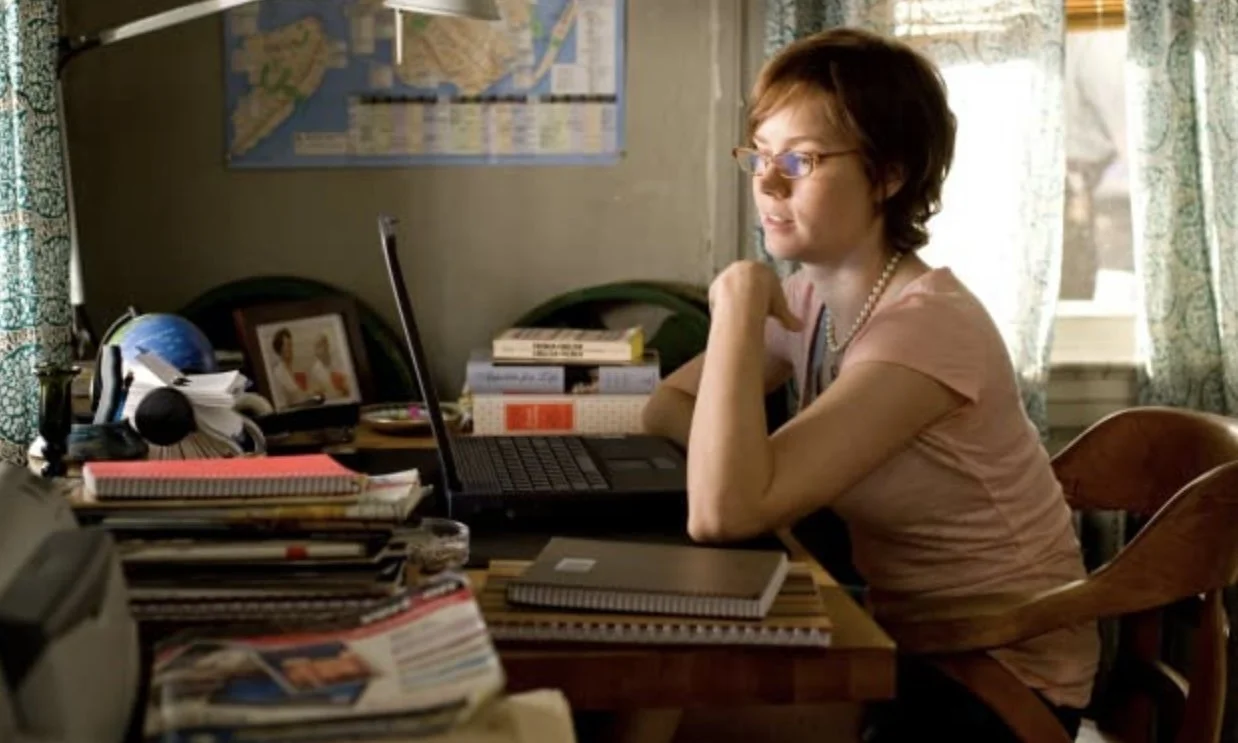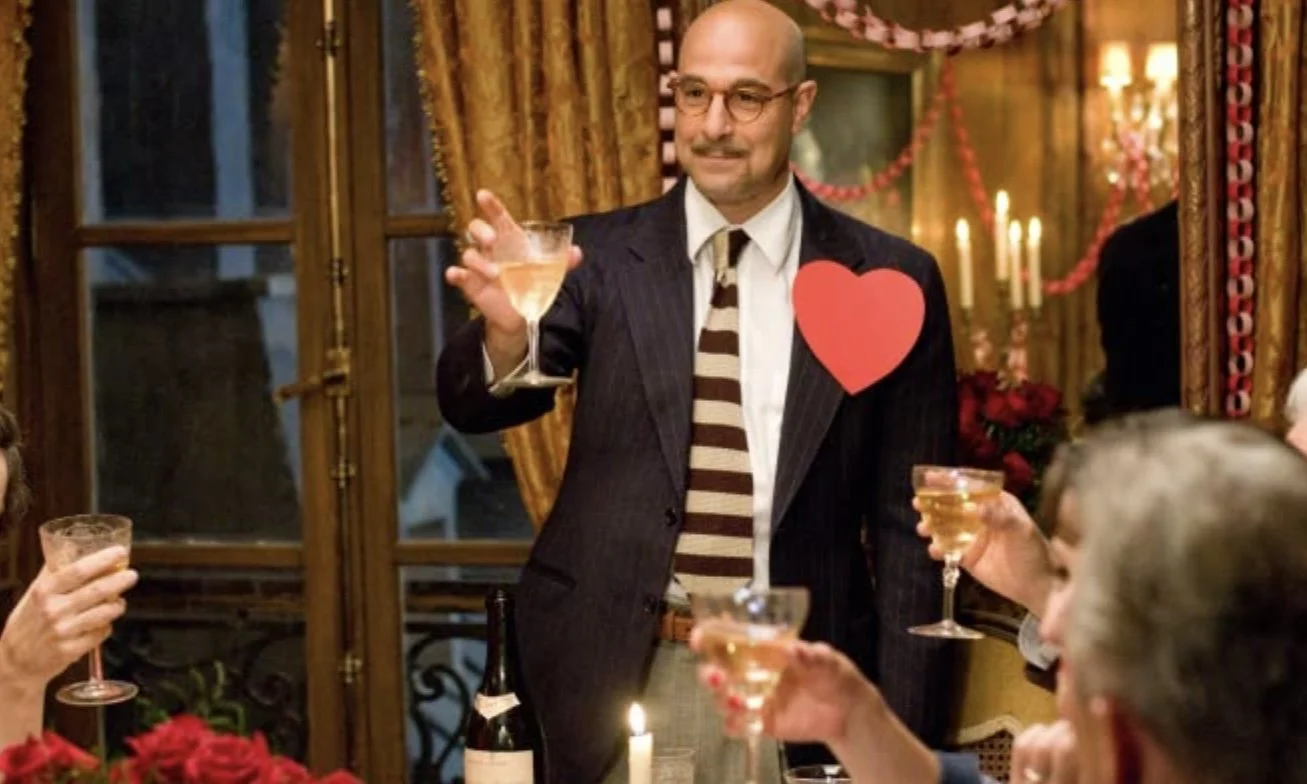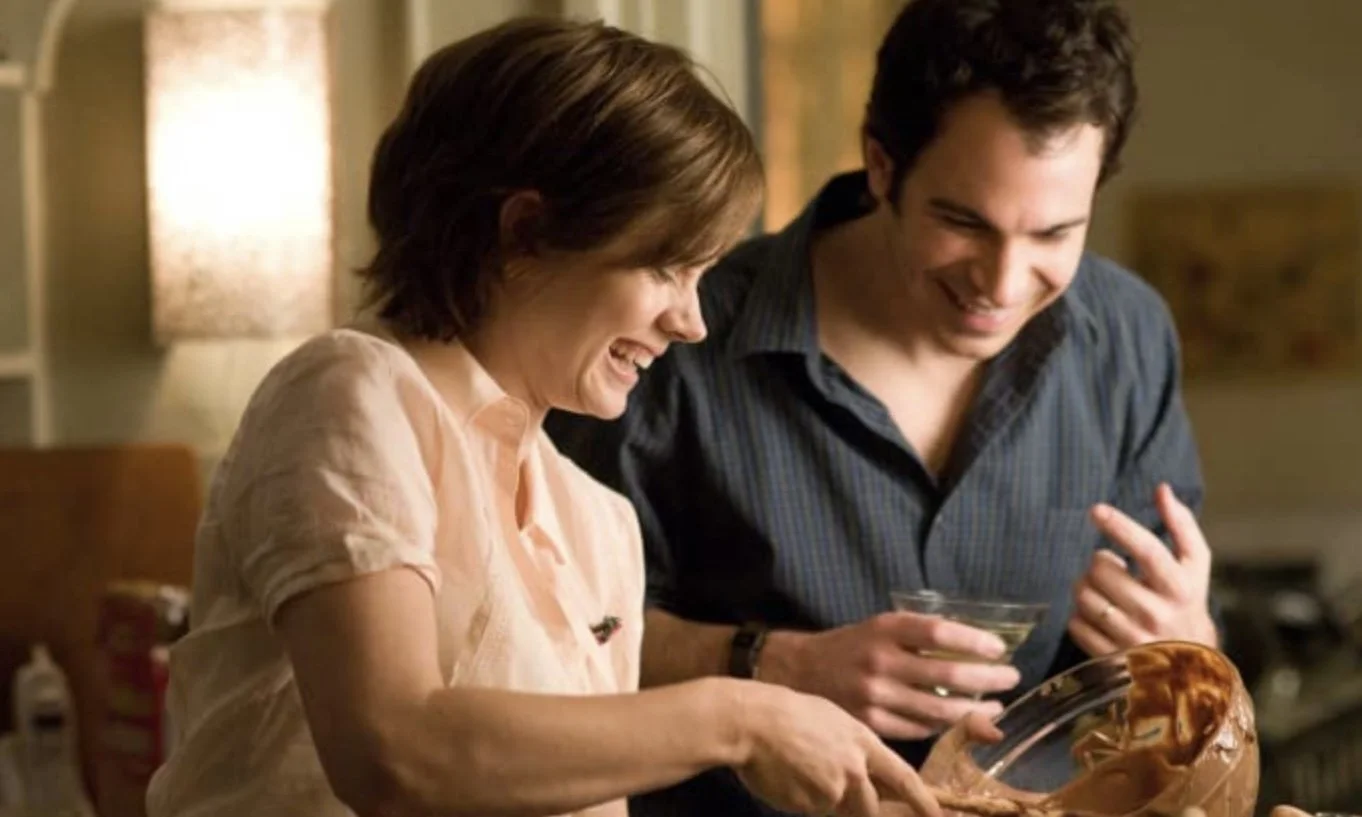Julie and Julia (dir. Nora Ephron, 2009)- Review
The untimely demise of Julie Powell offers a bittersweet opportunity to revisit the film to which she lent her name in 2009. Julie and Julia captured many of the pleasures of that point in time, while gently nodding to their bittersweet, transient nature. Meryl Streep, Stanley Tucci, luscious shots of pounds of butter, an aspiring digital girlboss: all good things in their way, united with an unusual level of civility through the screenplay and direction of Nora Ephron. In the spirit of one of the titular TV chef’s recipes, constituent parts which could so easily curdle into mean-spirited comedy melt into a warm, gentle wash of creature comforts.
With its key themes of love, loss, and home cooking having come into ever sharper relief since the pandemic, it’s a welcome relief to see how unphased Efron is by her material. Gone are the manic, bouncy barbs of her 80s and 90s classics: the late director’s final film blends the rough edges of real life, and its manifold rejections, into a mellower ‘big picture’. Amy Adams plays the Julie, a real-life government employee turned OG food influencer – a timeless Cinderella story if ever there was one- who decided to cook her way through Julia Child’s “Mastering the Art of French Cooking”. Though separated by space and time, Julie and Julia (Streep, obviously) and their audiences are blended into an unctuous, zingy panorama of the transient yet universal nature of human joy and connection.
Julie and Julia is rooted in in the pleasure of the familiar, offering up thoughtful yet palatable fare which an underlying care and sensitivity to both of the women it portrays. Jumping between 1949 and 2002, the film cheekily flips apparent disparity in the stature of its subjects- humble blogger versus the grand dame of haute cuisine- to unearth the human beneath the Child caricature.
Beneath the carnival-barker Muppet voice and quirky posture, which dominated TV screens in mid-century America, Efron and Streep’s take on Julia insists on the nobility of her motivation. With the Covid banana-bread pandemic now a distant nightmare, replaced by the cost of living crises and the obesity epidemic, Child’s insistence on the accessibility of food remains topical. Admittedly, her passion for meat, cheese, and all things artery-clogging might not be entirely suited to the present moment- but Ephron is clear-eyed about the need to modernise. The film hinges, in part, on Julie’s ambition to meet the then-90 year old Child, as the blog took off and launched Powell’s writing career. This question looms over the film but not over its ending, Ephron’s way of reminding us that this is a film, not a hagiography.
Hazarding all sorts of rejections and failures (with the publishing industry arguably the biggest villain of the piece) both women lean heavily on supportive husbands: Stanley Tucci as Paul Child and Chris Messina as Julie’s spouse Eric. These supportive side-pieces, enthusiastically guzzling the much-critiqued dishes that represent their hope and dreams, provide a final, overarching reminder of the subjectivity of pleasures. Deftly using Julie Powell’s voice to dip into Paul’s personal letters for flashbacks, Efron’s screenplay unearths unlikely anecdotes, and Child’s comparisons of a hot cannoli and the male anatomy. Perhaps Child wouldn’t have been best pleased by the liberty, but perhaps, like Ephron- and Streep and Tucci, who recall their post Devil Wears Prada friendship blossoming on the film- she would have mellowed with age. Warm, moist, and unapologetically decadent, like all French food, and films about it, should be.




